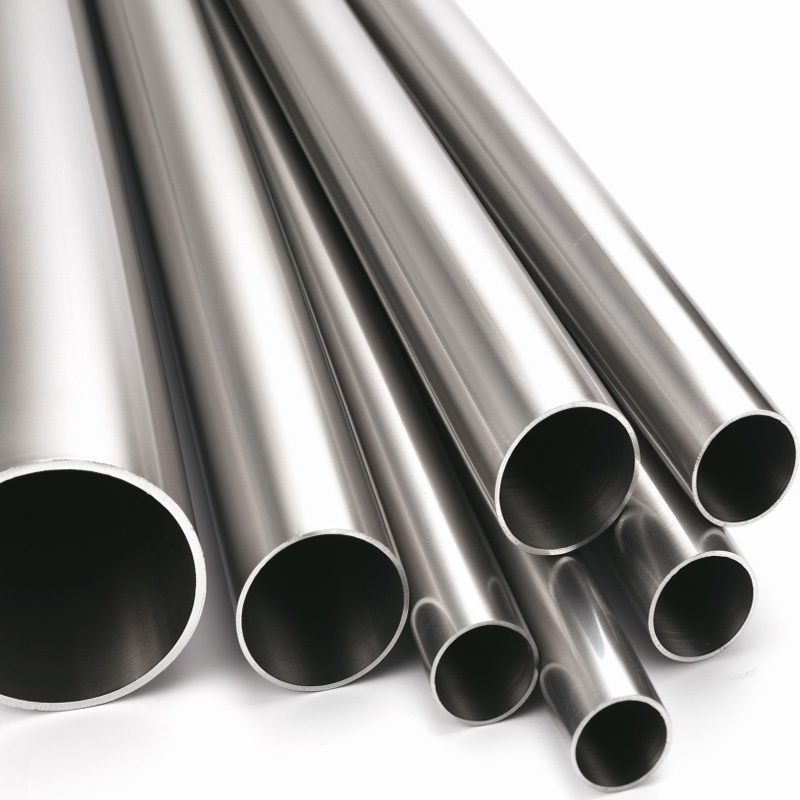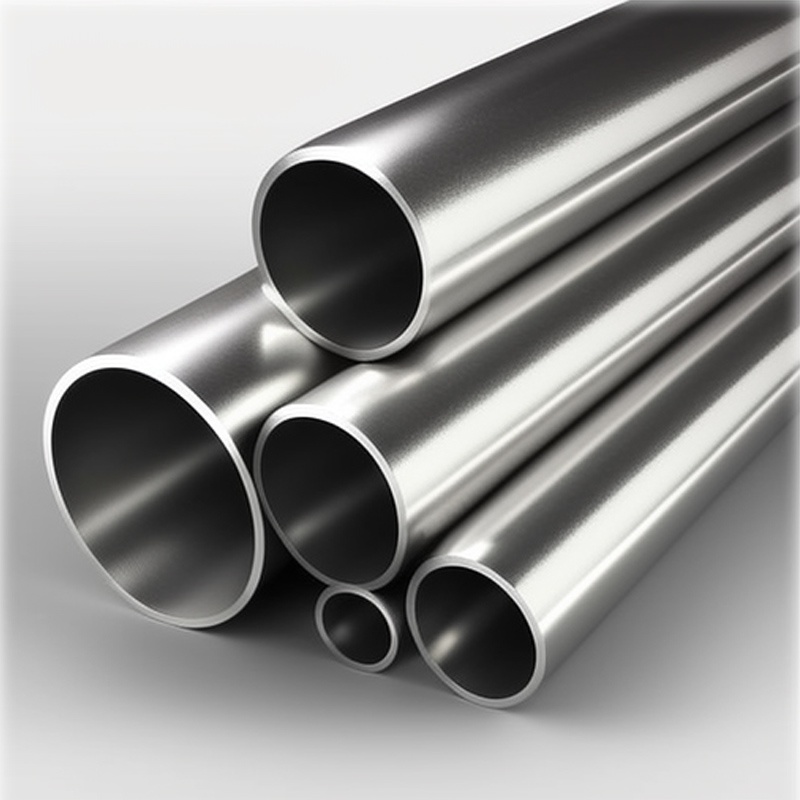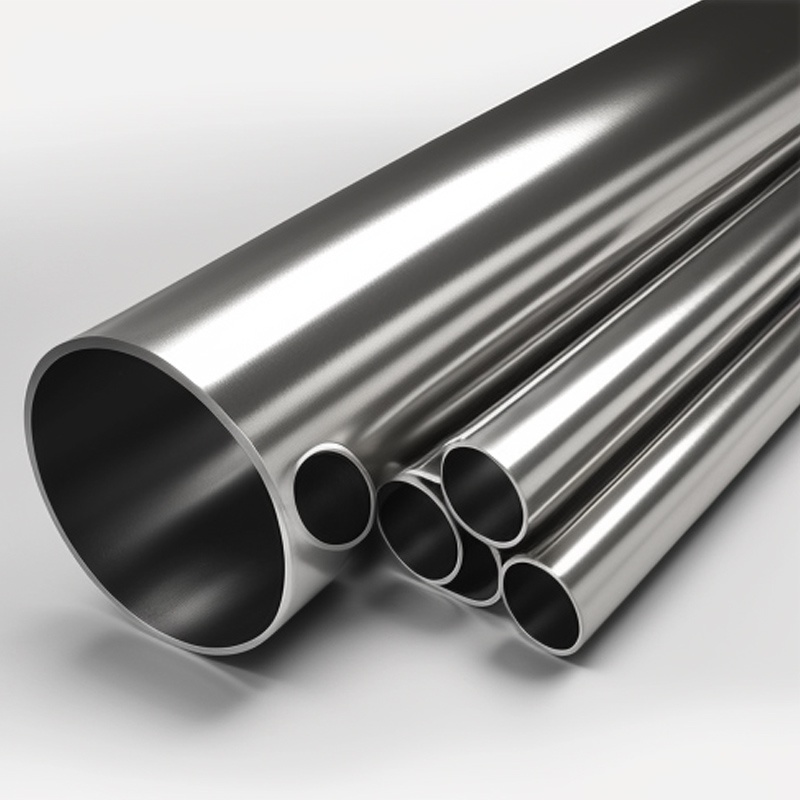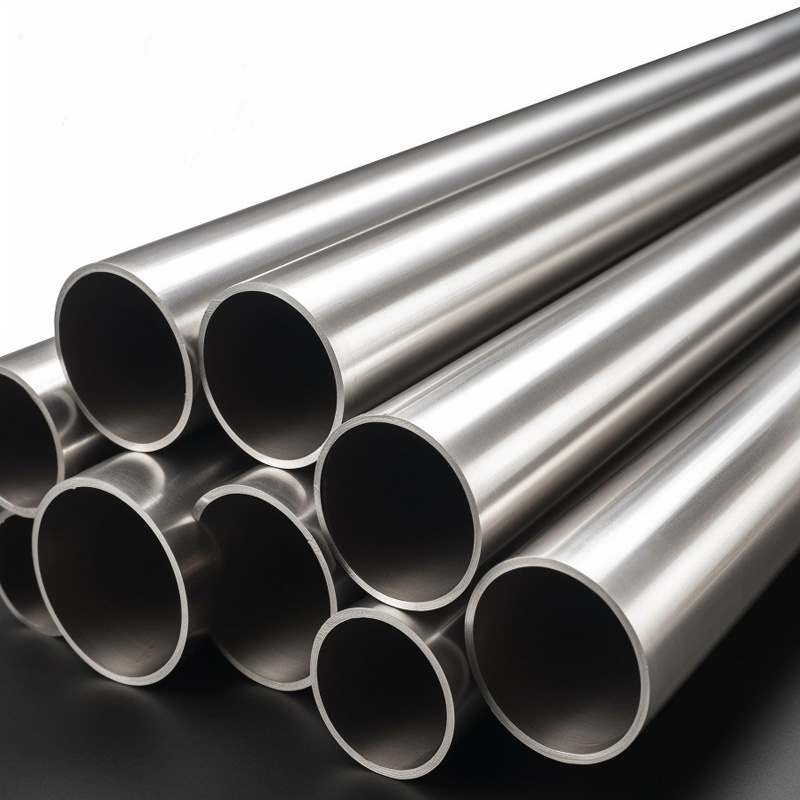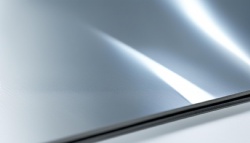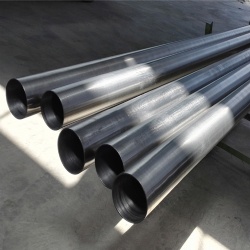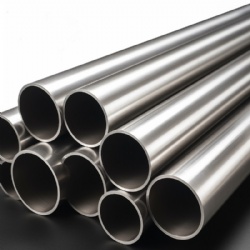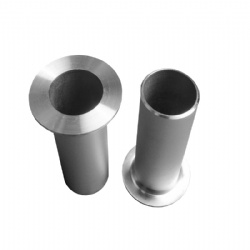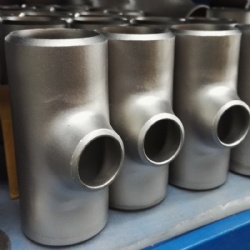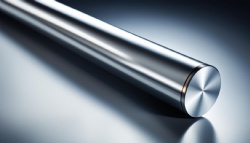Products >> Titanium >>
Titanium pipe suppliers
- Product No.:titanium pipe
- Material Grade:titanium
Premium Titanium Pipe Supplier - Top Quality Materials
Welcome to our premium titanium pipe supplier! If you're looking for top-quality materials for your next project, you've come to the right place. Our expert team has years of experience in the industry and is dedicated to providing the finest collection of titanium pipes for manufacturing, construction, aerospace, and medical applications. With our commitment to quality and customer satisfaction, you can trust us to be your one-stop-shop for titanium pipes.
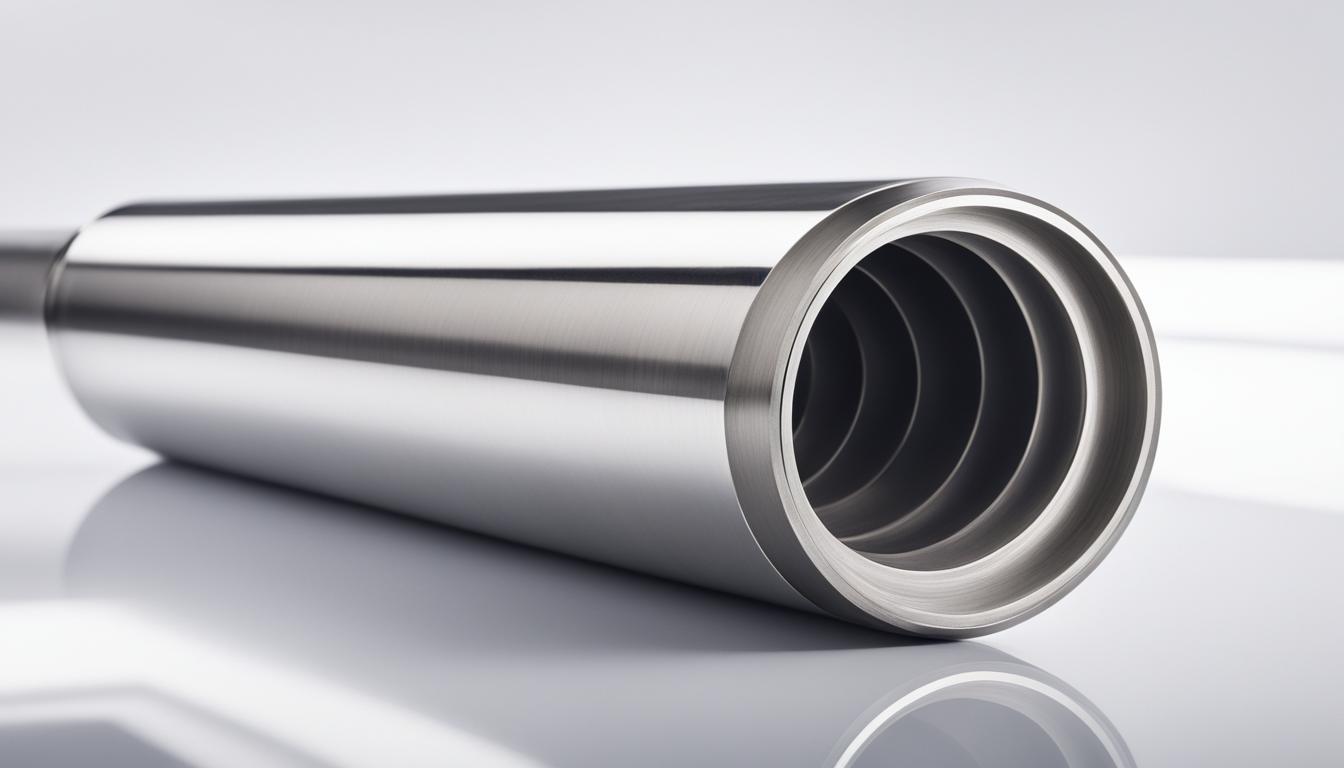
Key Takeaways:
- We offer high-quality titanium pipes for a variety of industries.
- Our team has years of experience and a dedication to customer satisfaction.
- As a trusted titanium pipe supplier, we provide efficient and prompt delivery worldwide.
- Our manufacturing facilities are equipped with the latest technology to ensure consistent results and meet industry standards.
- Contact us today for all your titanium pipe needs.
Trusted Titanium Pipe Supplier
Looking for a trustworthy titanium pipe supplier can be a challenging task. You want to ensure that you are receiving high-quality materials that meet your specific project needs. Luckily, our years of experience in the industry have solidified our reputation as a reliable and trustworthy supplier that you can count on.
At our premium titanium pipe supplier, we are dedicated to delivering top-quality titanium pipes to various sectors. Our commitment to customer satisfaction sets us apart as a reputable supplier that always puts our clients' needs first. We pride ourselves on our attention to detail, excellent service, and consistent product quality.
From manufacturing to distribution, our expert team is here to offer you the finest collection of titanium pipes that meet your project needs. Trust us to provide not only the best products but also unparalleled support and service.
Partnering with our trusted titanium pipe supplier means you can feel confident that your project is in capable hands. Contact us today to learn more about our products and services and experience the excellence that sets us apart.
Premium Titanium Pipe Manufacturer
Our team at hengze industry takes great pride in being a premium titanium pipe manufacturer. We utilize advanced technology and strict quality control processes to ensure the production of top-notch pipes that meet the highest industry standards. Our state-of-the-art manufacturing facilities are equipped with the latest machinery, enabling us to deliver consistent results from start to finish.
At hengze industry, we understand that each project has specific requirements. That's why we offer a wide range of titanium pipes for various applications. Whether your project requires high-pressure or high-temperature pipes, we have the expertise and capability to manufacture the perfect fit.
Our dedicated team of professionals oversees the entire production process, from raw materials to finished products. We use advanced manufacturing techniques and quality control processes to ensure that every pipe meets our stringent standards for quality and performance. As a result, our customers trust us as a reliable supplier of premium titanium pipes.
|
Why Buy From Hengze Industry? |
|
Advanced technology and strict quality control processes |
|
State-of-the-art manufacturing facilities and machinery |
|
A wide range of titanium pipes for various applications |
|
Dedicated team of professionals overseeing entire production process |
|
Stringent standards for quality and performance |
|
Trusted and reliable supplier of premium titanium pipes |
At hengze industry, we are committed to providing our customers with high-quality titanium pipes that meet their project needs. Our advanced manufacturing processes and strict quality control practices ensure that each pipe is crafted to perfection. Trust us to deliver premium titanium pipes that exceed your expectations.
Extensive Titanium Pipe Distribution Network
As a trusted titanium pipe distributor, we take pride in our extensive distribution network that allows us to deliver our premium titanium pipes straight to your doorstep. We have strategically located distribution channels around the world, ensuring efficient and timely delivery to your desired location.
Our team is committed to providing exceptional service, and we work closely with our customers to meet their individual needs. Whether you need a small or large quantity of titanium pipes, we have the capability to fulfill your order promptly and efficiently.
Trust our reliable and well-established network to provide you with the best titanium pipes, no matter where you are located. Contact us today to learn more about our distribution capabilities and how we can help you with your titanium pipe needs.
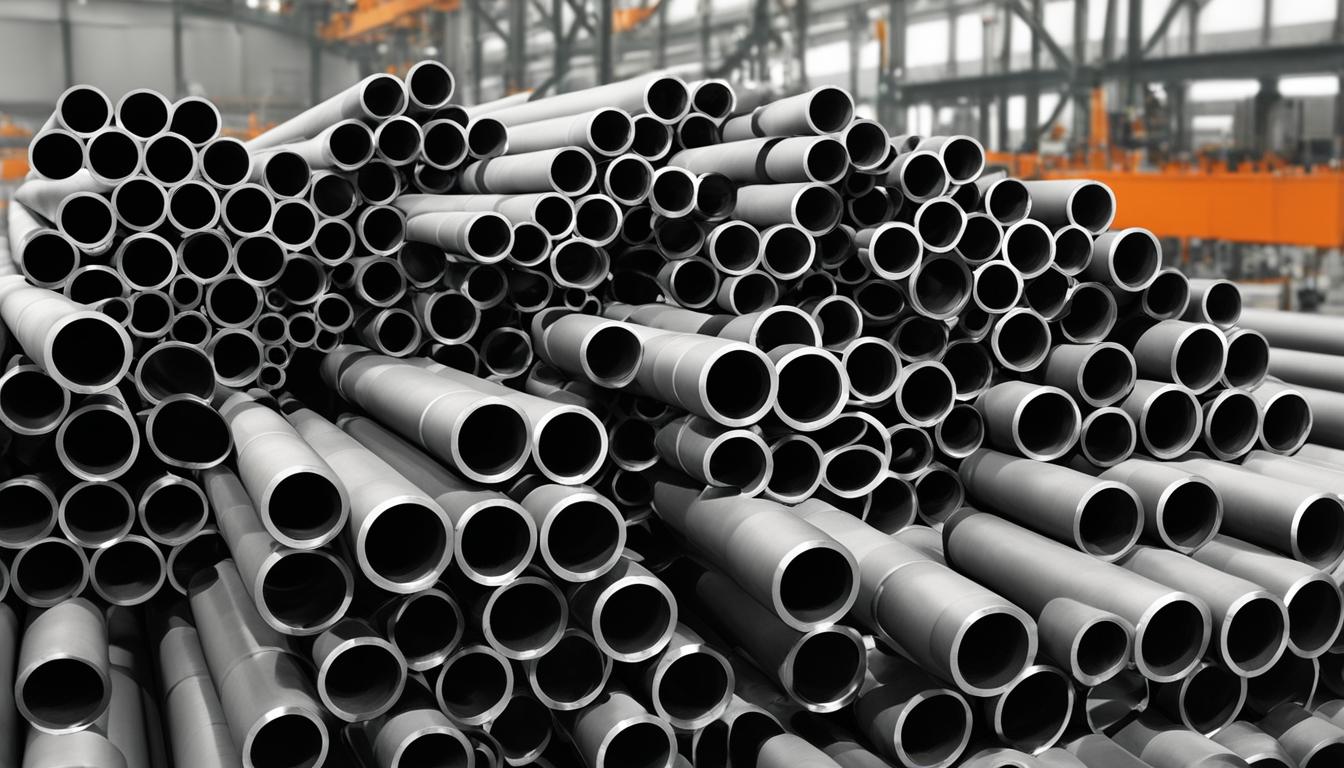
Global Titanium Pipe Exporter
As a recognized titanium pipe exporter , we are dedicated to bringing our premium products to customers worldwide. We have successfully delivered our high-quality titanium pipes to a range of industries, including industrial and construction. Our excellence in logistics and paperwork sets us apart, making international transactions seamless for our customers.
With our extensive experience in the industry, we are well-equipped to handle the export requirements for any project. We prioritize meeting our client's needs and exceeding their expectations, with a tailored approach to each project.
"We have worked with this titanium pipe exporter for years, and their reliability and quality of products are unmatched. Their expertise in international logistics has helped us tremendously in expanding our business globally."
Titanium Pipe Export to Europe
|
Facts |
Figures |
|
Titanium Pipe Size |
Various sizes available |
|
Order Quantity |
500 tons |
|
Delivery Time |
3 weeks |
|
Export Destination |
Port of Rotterdam |
For instance, we recently completed a titanium pipe export order to Europe, delivering 500 tons successfully within a tight timeframe. Our expertise in global logistics and customs clearance ensured that the shipment arrived at the Port of Rotterdam without any delays or complications.
Contact us today to discuss your titanium pipe export needs, and we'll provide you with tailored solutions that meet your exact specifications and project requirements.
Titanium Tubing Supplier for Various Industries
In addition to being a top titanium pipe supplier, our company goes above and beyond to provide extensive options for titanium tubing as well. Our commitment to quality extends to our inventory, which boasts a diverse range of tubing sizes, grades, and specifications suitable for a variety of project requirements.
We work with various industries, from aerospace to medical, to ensure that their titanium tubing needs are met by our reliable and trustworthy services. Our team of experts has the experience and knowledge to guarantee that you receive the highest quality titanium tubing available.
Quality Titanium Tubing
Our company takes pride in being a premium titanium pipe and tubing manufacturer. With advanced technology and strict quality control processes, we guarantee the production of high-performance titanium tubing. Our cutting-edge facilities and advanced manufacturing equipment enable us to deliver precise and reliable tubing that meets the highest industry standards.
Unmatched Expertise
By Buying from our company means relying on a team of experts with vast knowledge and experience in the production and distribution of titanium pipes and tubing. We aim to meet all your expectations, making sure that you receive expert advice, achievable solutions, and excellent service from start to finish.
Leading Titanium Tube Manufacturer
At our company, we are proud to be a leading titanium tube manufacturer. Our commitment to precision engineering and utilization of superior materials allows us to create high-performance tubes that are unmatched in quality. We adhere to strict quality control standards and regulations throughout our manufacturing process, which ensures that every titanium tube we produce exceeds customer expectations.
Our state-of-the-art manufacturing facilities are equipped with the latest technology and machinery, enabling us to produce titanium tubes with exceptional accuracy and consistency. The combination of our attention to detail and the high-quality materials we use result in tubes that offer superior durability and reliability for any project.

Titanium Tube Applications
Our titanium tubes are utilized in a variety of different applications, for industries such as aerospace, defense, marine, medical, and more. Their high strength-to-weight ratio, excellent heat and corrosion resistance, and biocompatibility make them an ideal choice for applications in harsh and demanding environments. Our experts are available to help you find the perfect titanium tube to meet the specific needs of your project.
"We are thrilled with the products we receive from this titanium tube manufacturer. Their commitment to quality and precision is evident in every tube we receive." - John Smith, CEO of XYZ Aerospace
Custom Titanium Tube Solutions
Our custom titanium tube solutions provide a unique advantage for our customers, allowing us to create titanium tubes to their exact specifications and requirements. Our experts work closely with clients, from initial design concept to final production, to ensure that their vision is realized. Our flexible and agile approach enables us to provide personalized solutions for any project, at a competitive price point.
Use Our Titanium Tubes
Our titanium tubes are the ideal choice for those looking for reliable and durable tubing solutions. As a leading titanium tube manufacturer, we are dedicated to delivering high-quality products and an outstanding customer experience. Contact us today to learn more about our titanium tube processing and how we can help make your project a success.
Reliable Titanium Tube Distributor
Our company takes pride in being a reliable titanium tube distributor. No matter the size of your company, we have the capabilities to supply tubes for all your needs. With an extensive inventory and efficient distribution network, we are able to meet demand promptly and effectively. We offer competitive pricing without compromising on quality, ensuring exceptional service and timely delivery of your titanium tube orders.
Our expert team is always available to assist you with any questions or concerns you may have. When you work with us, you can trust that you will receive the highest-quality titanium tubes and top-notch customer service.
Why Source From Us?
When consider a titanium tube distributor, it is important to work with a supplier you can rely on. Our commitment to quality and customer satisfaction has earned us a reputation as one of the best titanium tube distributors in the industry. Here are just a few reasons why you should buy from us:
- Wide range of titanium tubes in a variety of grades and sizes
- Efficient and reliable distribution network for prompt delivery
- Competitive pricing without compromising on quality
- Expert team dedicated to providing exceptional service
Experience the difference of working with a reliable titanium tube distributor. Contact us today to learn more about how we can meet your titanium tube needs.
Global Titanium Tube Exporter
As a leading global titanium tube exporter, we take great pride in providing top-quality products to customers all around the world. With extensive experience in international trade and shipping, we specialize in moving titanium tubes seamlessly across borders.
Our team of experts understands the importance of smooth and hassle-free transactions. That's why we ensure that all the necessary export procedures are handled promptly and efficiently. We take care of everything, from documentation to logistics, so you can focus on your business needs.
Why Us?
At our company, we stand out from the competition by providing exceptional service and high-quality products. Here are just a few reasons why customers consider us as their go-to titanium tube exporter:
- Expertise: Our team has extensive knowledge of the industry and can provide insight and guidance when needed.
- Global Network: We have established an extensive distribution network that allows us to provide prompt and efficient service to customers worldwide.
- Quality Assurance: We pride ourselves on delivering only the best products to our customers.
When it comes to exporting titanium tubes, we take care of everything. Trust us to deliver your products on-time and with exceptional service. Contact us today to learn more about how we can meet your global export needs.
Conclusion
When it comes to your titanium pipe and tubing needs, our premium titanium pipe supplier has got you covered. With our top-quality materials, trustworthy service, and extensive product options, we are a reliable partner for all your projects. Whether you need manufacturing, distribution, or export services, our expert team is here to help you. Contact us today to experience the excellence and reliability that sets us apart as a leading titanium pipe supplier.
FAQ
What types of titanium pipes do you offer?
We offer a wide variety of titanium pipes, including seamless and welded options. Our inventory includes different grades, sizes, and specifications to meet the needs of various industries and applications.
Are your titanium pipes manufactured to industry standards?
Yes, all our titanium pipes are manufactured to the highest industry standards. We follow strict quality control processes and utilize advanced technology to ensure that our pipes meet or exceed the required specifications.
Can you customize titanium pipes according to my specific requirements?
Absolutely! We understand that different projects have unique specifications. Our team of experts can work with you to customize titanium pipes based on your specific requirements, including size, shape, and other parameters.
Do you provide documentation and certifications for your titanium pipes?
Yes, we provide comprehensive documentation and certifications for all our titanium pipes. This includes material test reports, certificates of compliance, and any other necessary paperwork to ensure quality and compliance with industry standards.
How do you ensure the quality of your titanium pipes?
We have stringent quality control processes in place throughout the manufacturing and inspection stages. Our team of professionals conducts rigorous testing and inspections to ensure that our titanium pipes meet the highest quality standards before they are shipped to our customers.
What industries can benefit from your titanium pipes?
Our titanium pipes are used in a wide range of industries, including aerospace, oil and gas, chemical processing, medical, and marine applications. With their exceptional corrosion resistance and high strength-to-weight ratio, titanium pipes are ideal for demanding environments and critical applications.
Do you offer international shipping for your titanium pipes?
Yes, we have a global distribution network and can ship our titanium pipes to customers worldwide. Our team is experienced in handling international shipments, ensuring that our products reach you safely and efficiently.
What is the difference between titanium pipes and titanium tubes?
Titanium pipes and titanium tubes have slight differences in terms of shape and dimensions. Pipes are generally used for transporting fluids or gases, while tubes are often used for structural applications or as heat exchangers. However, the terms are sometimes used interchangeably depending on the industry.
Can you provide titanium tubing in specialized alloys or grades?
Yes, we have the capability to provide titanium tubing in specialized alloys or grades. Our extensive inventory and strong relationships with manufacturers allow us to fulfill specific requirements for various industries, ensuring that you get the right titanium tubing for your application.
Do you offer technical support for your titanium pipes and tubes?
Absolutely! Our team of experts is available to provide technical support and answer any questions you may have about our titanium pipes and tubes. We are dedicated to helping you find the right solution for your project and ensuring your satisfaction with our products.
Titanium pipe specifications
Titanium pipe specifications include the following:
- Size: Titanium pipe is available in a wide range of sizes, from small diameter tubing to large diameter pipe. The most common sizes are 1/8" to 36" in diameter.
- Grade: Titanium pipe is available in a variety of grades, including Grade 2, Grade 5, and Grade 7. The grade of titanium determines its strength, ductility, and corrosion resistance.
- Thickness: Titanium pipe is available in a variety of thicknesses, from schedule 5 to schedule 160. The thickness of the pipe determines its pressure rating and weight.
- Length: Titanium pipe is typically available in lengths of 10 to 20 feet. However, custom lengths can be ordered from some suppliers.
Material grade
The most common grades of titanium used for pipe are Grade 2, Grade 5, and Grade 7.
- Grade 2: Grade 2 titanium is the most commercially pure grade of titanium. It is a good all-purpose titanium grade with good strength, ductility, and corrosion resistance.
- Grade 5: Grade 5 titanium is a high-strength titanium alloy with excellent corrosion resistance. It is often used in applications where high strength and light weight are required.
- Grade 7: Grade 7 titanium is a high-strength titanium alloy with excellent corrosion resistance and creep resistance. It is often used in applications where extreme strength and durability are required.
Tolerance
Titanium pipe is manufactured to a variety of tolerances, depending on the application. The most common tolerances are +/- 0.005" for the outside diameter and +/- 0.003" for the wall thickness.
Applications
Titanium pipe is used in a wide range of applications, including:
- Aerospace: Titanium pipe is used in aircraft frames, engines, and landing gear.
- Automotive: Titanium pipe is used in exhaust systems, suspension components, and engine parts.
- Chemical processing: Titanium pipe is used in heat exchangers, reactors, and piping systems.
- Marine: Titanium pipe is used in ship hulls, propellers, and offshore platforms.
- Medical: Titanium pipe is used in medical implants, such as artificial joints and dental implants.
- Other applications: Titanium pipe is also used in a variety of other applications, such as food and beverage processing, pharmaceutical manufacturing, and power generation.
Here are some frequently asked questions (FAQs) about titanium pipe:
What is titanium pipe?
Titanium pipe is a seamless or welded pipe made of titanium, a strong, lightweight, and corrosion-resistant metal. It is available in a variety of sizes, grades, and thicknesses, making it suitable for a wide range of applications.
What are the advantages of using titanium pipe?
Titanium pipe has a number of advantages over other types of pipe, including:
- High strength: Titanium pipe is stronger than most other metals, including steel and aluminum. This makes it ideal for applications where high strength is required.
- Lightweight: Titanium pipe is about 45% lighter than steel pipe. This makes it an attractive option for applications where weight savings are important.
- Corrosion resistance: Titanium pipe is highly resistant to corrosion, even in harsh environments such as seawater and chemicals. This makes it ideal for applications where longevity and reliability are important.
- Biocompatibility: Titanium is a biocompatible metal, making it suitable for medical implants such as artificial joints and dental implants.
What are the applications of titanium pipe?
Titanium pipe is used in a wide range of applications, including:
- Aerospace: Titanium pipe is used in aircraft frames, engines, and landing gear.
- Automotive: Titanium pipe is used in exhaust systems, suspension components, and engine parts.
- Chemical processing: Titanium pipe is used in heat exchangers, reactors, and piping systems.
- Marine: Titanium pipe is used in ship hulls, propellers, and offshore platforms.
- Medical: Titanium pipe is used in medical implants, such as artificial joints and dental implants.
- Other applications: Titanium pipe is also used in a variety of other applications, such as food and beverage processing, pharmaceutical manufacturing, and power generation.
How is titanium pipe made?
Titanium pipe is made by a process called extrusion. In this process, titanium billets are heated to a high temperature and then forced through a die to form the desired shape. The pipe is then annealed to relieve stress and improve its machinability.
How is titanium pipe welded?
Titanium pipe can be welded using a variety of welding processes, including gas tungsten arc welding (GTAW), electron beam welding (EBW), and laser beam welding (LBW). The welding process used depends on the specific application and the requirements of the customer.
How is titanium pipe finished?
Titanium pipe can be finished in a variety of ways, including:
- Pickling: Pickling removes the oxide layer that forms on the surface of titanium during processing.
- Electropolishing: Electropolishing creates a smooth and bright surface finish.
- Anodizing: Anodizing creates a hard and wear-resistant surface finish.
Contact Us

Name: Mr. Ren
Tel: +86-18292471213
E-mail: info(at)intemetal.com
Add: Middle Section Baotai Road, Weibin District, 721013, Baoji, Shaanxi Province, China




